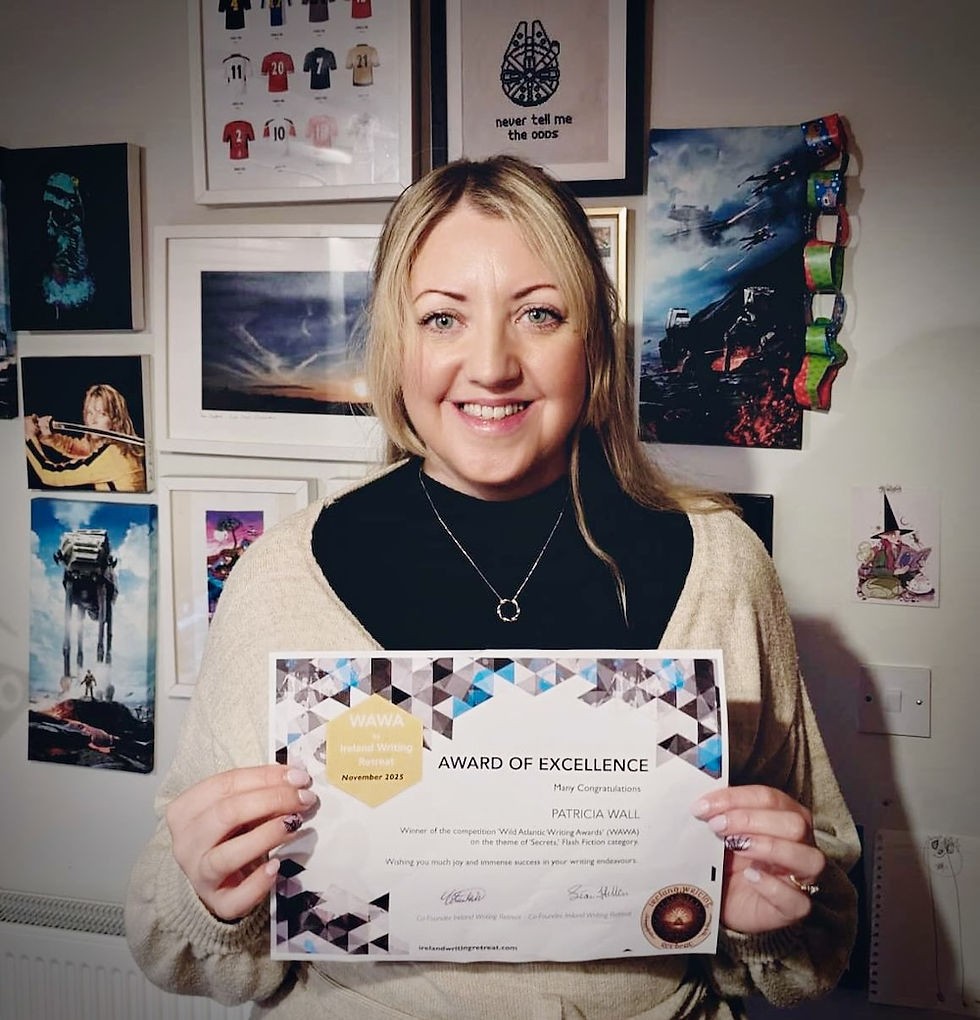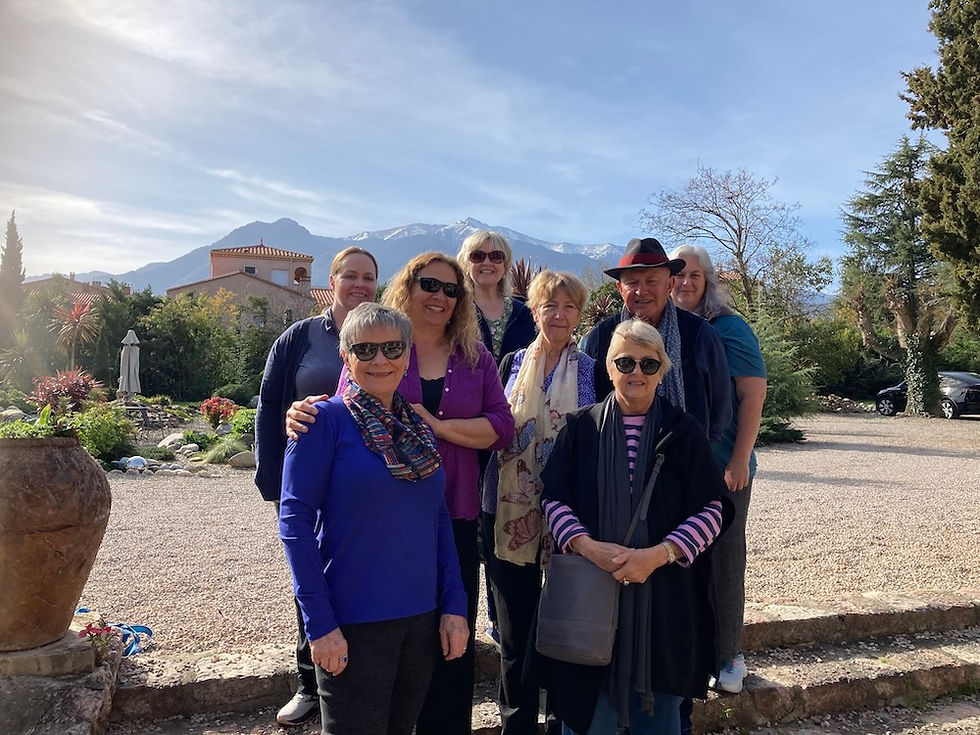Asking questions and the right questions to ask
- columbiahillen

- Nov 16, 2016
- 6 min read
Questions.
They’re a must-have in any good conversation – or at least they should be, though I’m sure you’ve met people best described as ‘energy vampires,’ people who suck the life out of a decent conversation by talking incessantly about him/herself or any given topic, and not asking you any questions whatsoever.
Yet while questions are terribly important, we often overlook their importance, and not just in ordinary conversations, but as creative writers. We shouldn’t, for the simple reason that asking questions leads to developing better storylines. The more questions, the more interesting the plot, the more rounded the characters, the greater the suspense, the comedy or the romance.

Asking questions has been the basis of my entire professional life so far – as a journalist.
Over the last 40 years or so in media I've covered police, education, city hall, the rise - and fall - of Mayors, Prime Ministers and Presidents, I've been a medical writer, a war correspondent, a columnist, a travel writer, a publisher, a creative writing teacher...
…I've written about heart transplants, airplane crashes, wars (Iraq, former Yugoslavia and Romania, not to mention my very own native northern Ireland), I've survived earthquakes and tropical storms and a few other catastrophes (some of my very own making, I’ll admit)...
…and asking as many questions as I could possibly think of was a key reason for my continued success.
One of the most frustrating things for a journalist is leaving an interview, regardless of where, when or with whom, then, reading through his/her notes with deadline fast approaching, say to him/herself, “Oops, I forgot to ask that question.”
I’ve also found in my writing career that asking that ‘extra’ question is often the key to an exclusive story. That’s why good journalists, thinking of that all-so-important ‘extra’ question, don’t ask it during the press conference, but save it for a quiet moment alone with the interviewee, whether that person be Prime Minister, Pope or Princess. Or Chief Investigating Officer.
With journalism, so with creative writing. Always ask questions. Of yourself the writer. Why am I writing about this particular subject? In this particular genre? Why am I setting the key dramas of my novel in this place or places? And of your characters. Would such and such really say that? Is that the tone or the diction my heroine would use as she speaks?
By doing this, you could end up with that brilliant best-seller with that unique angle on life.

Let me give you a specific example from my own writing to help illustrate the paramount importance of questions.
I’ve written several books but until recently they were non-fiction, for example, a how-to on practical journalism training, a travel book entitled, ‘Digging for Dracula,’ sweeping the reader from the wilds of Transylvania to the home of author Bram Stoker to the tall white letters in the hills of Hollywood.
‘Pretty Ugly’ was my first attempt at writing a novel.
Question: Where did the idea come from?
Like any journalist who values information, I try to keep abreast of the news. My bedside and my office are often cramped with stacks of newspapers and magazines (I’m still old school), most of which I’ve read and many from which I want to clip interesting articles.
One such article was about the extraordinary within ordinary, everyday cosmetics. The fact that those attractive, seemingly-innocent liquids and creams inside colorful boxes, jars and tubes on your supermarket shelf contain hundreds of toxic chemicals, obvious dangers to your health. Shocking.
Question: Why was this allowed to happen?
I found out that the lobbying power of rich cosmetic companies – turnover and profits in the billions of dollars/euro every year amounts to considerable campaign political clout - means that regulatory agencies such as the Food and Drug Administration (FDA) do not investigate the levels and the kinds of toxins within such products.
Question: Is anyone doing anything about it?
After some research, I learned about prominent politicians such as former Senator Edward Kennedy of Massachusetts who had tried for many years to regulate the industry. But they always came up against the behemoths of the beauty world which considered the importance of free enterprise trumped that of consumer health, that cosmetics companies should not divulge their ingredients for in doing so they might lose out to their competitors.
Question: What specific kind of toxic materials are in these cosmetics anyway?
Everything from lead to carbon black, a dark black powder used in eyeliner, to benzophenone, both linked to cancer; coal tar found in shampoos, soaps, hair dyes, and lotions, a known carcinogen; homosalate, a widely-used chemical in sunscreens and skin care products, a potential endocrine disruptor; hydroquinone, most commonly used in skin lighteners, products heavily marketed towards women of color, linked to cancer and organ-system toxicity. And many more.
Question. How do they actually cause damage to your health?
You put them on your skin, the body’s largest organ. That seems dangerous enough. Not only. Even more distressing. Those harmful toxic materials are now contained in what are called ‘nanoparticles.’ Ingredients so small they’re one-thousandth times the size of a human cell. And guess what. Yes, you’ve got it. Not only do they, being so small, slip deep inside our skin, they actually go inside the cells themselves.
Question: What could happen when they do this?
‘Inside the skin’ means into the blood stream. And that particular life-giving circulatory system flows through pretty important organs such as the brain and the heart. The incredible thing, however, is we don’t actually know what happens when they penetrate our cells. While hundreds of millions of dollars is spent on research into how nanoparticles can be used to make everything from car accessories to computer parts, with, for example, the U.S. National Nanotechnology Initiative offering generous government funding, very little is actually spent on finding out about potential health hazards. Once inside the cell, can they cluster together, causing even more harm?
Thus ‘Pretty Ugly,’ a contemporary novel based on scientific facts, that links medicine, media and modeling, the US (Kansas City, Boston, New York and Washington) with Ireland (Belfast and Donegal), with elements of Celtic mythology and magic realism.

‘Pretty Ugly’ has been a few years in the writing, and I wish I could say it was all plain sailing, but as probably most first-time novelists will tell you, “It wasn’t.”
I crashed into some plot rocks, found myself diverted by a few wayward literary waves and was even capsized mid-story and tossed into the opaque waters of writers’ block without a literary lifebelt. And if that wasn’t enough, I then had to throw a lot of ballast overboard in a desperate attempt to save the whole kit and caboodle from going under (100,000 words in total), with only myself on the poop deck waving a sad farewell.
The GOOD news, however, is that it’s DONE! And boy, am I PROUD – not about ‘Pretty Ugly’ being a success. That decision I leave to others more astute and objective than I, which includes you. But about finishing it, just the way I wanted.
Now all I need is appreciative book-lovers to read what I’ve written. In fact, as many such readers as I can possibly muster. More than that, some of those fine people to kindly, generously, selflessly, write a short comment on the Amazon page below. Around 50 words is enough. I’ll even settle for 10. Even one, preferably ‘Great.’
I know it’s a lot to ask. In today’s fast-moving world, there seems barely enough time for even the ‘must-do’ things in daily life than to pen a few words to help an aspiring author. But following the timeworn advice, ‘if you don’t ask, you don’t get,’ I’m asking. Not quite with cap in hand, but with one knee slightly bent (lopsided, probably from playing too much football as a young man).
So, here goes…
Far be it from me to say, 'Pretty Ugly' would make an excellent Thanksgiving, Christmas, New Year or birthday gift for book-reading friends and family, but think of it this way. It has a pretty cover, it's a pretty good read and it's a pretty size so it's bound to look extremely pretty wrapped up with nice colorful paper or inside a seasonal red stocking.
Take a look and see what you think. And, of course, ask me any questions you wish. Then please leave a one-word or ten-word message on Amazon. I’d be much obliged. Go raibh maith agat.
I also look forward to seeing you at next year’s ‘Ireland Writing Retreat’ when I’ll be talking about some hard-won lessons from my long career in international journalism, about – yes, you’ve guessed it – ‘asking questions.’














Comments